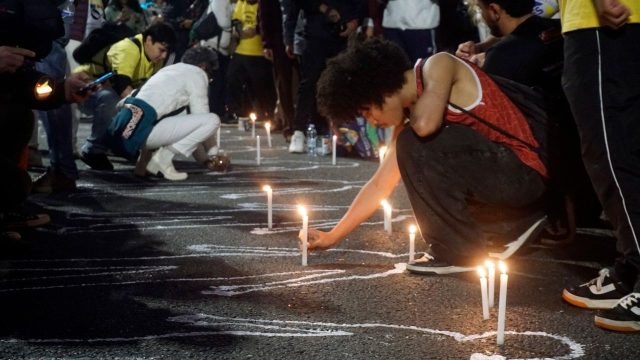
“In Rio de Janeiro, the term ‘public safety’ has become synonymous with ‘public massacre’,” said Tom Farias in Folha de S. Paulo.
On 29 October, a square in the Penha neighbourhood was turned into an open-air morgue – following the deadliest police raid in our country’s history, in which some 2,500 officers swept their way through one of the city’s dirt-poor favelas, killing more than 132 suspected gang members in a so-called “defence operation”.
‘Death squads’
It was the fourth such massacre carried out under Governor Cláudio Castro – but it was by far the most barbaric. Many of the men had been shot in the back of the head, clearly executed. Their “decapitated, dismembered, stabbed and gunshot-disfigured” bodies were laid out in the streets, said an editorial in the same paper.
The executions were almost indiscriminate: of the identified dead, at least “20 had no prior police record or criminal history”, and in the aftermath, the police reportedly allowed crucial evidence to disappear. With its “death squads” and police corruption, this operation recalls the “worst moments of the military dictatorship”.
Liberal elites are horrified, said Iolanda Fonseca in The Rio Times. But favela residents “overwhelmingly back” the raid. A huge 88% of them approve of the police operation, according to a recent poll.
That’s because they know what life in the favelas is really like, said Adele Cardin in the same paper. Millions of people in these labyrinthine shanty towns now live under the total control of the terrifying Comando Vermelho (CV) crime syndicate, which over the past five decades has transformed from a bunch of “drug peddlers into sophisticated territorial overlords”.
Residents’ movements are tightly controlled between barricades made out of stolen train tracks; night-vision-equipped drones hover overhead, monitoring their every move. Inside, the CV enforces a monopoly on everything, from the sale of cooking gas (at an extortionate R$150 a bottle, compared with the statewide average of R$97), to internet access. “This isn’t just crime; it’s a parallel state trapping the poor in poverty and fear.”
‘We’ve seen this story before’
It’s true that many residents are fed up, said Ruth de Aquino in O Globo (Rio de Janeiro). But if the authorities really want to fix this problem, then what the favelas need is “genuine political will and investment” to establish a state presence that can push out the gangs. That includes providing basic sanitation, better roads and housing, and access to public facilities. A massacre like this, on the other hand, will provoke only “more hatred and revenge”.
“We’ve seen this story before,” agreed Merval Pereira in the same paper. In 2010, the army was drafted in to invade the Complexo do Alemão slum and drive out the gangs once and for all. The drug traffickers fled; the operation was declared a success. But without rigorous legislation and intelligence operations, guess what happened: “Well, they all came back.”
The ‘defence operation’ killed 132 suspected gang members, but could spark ‘more hatred and revenge’






